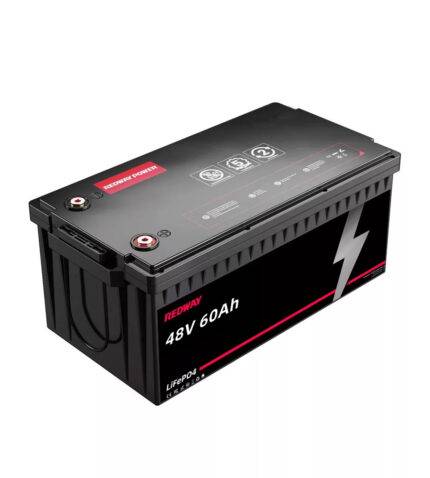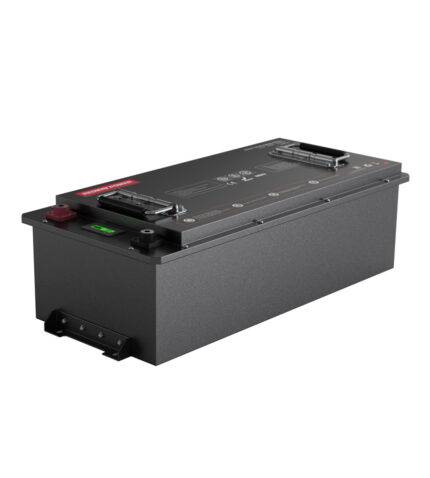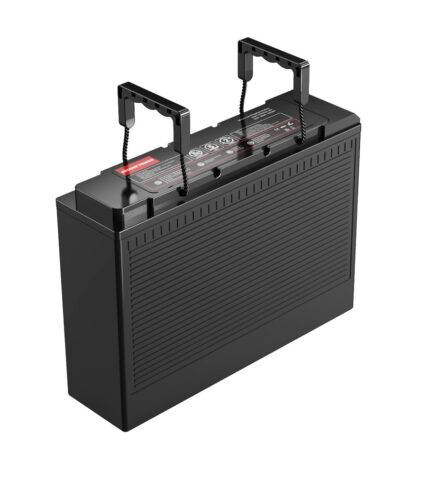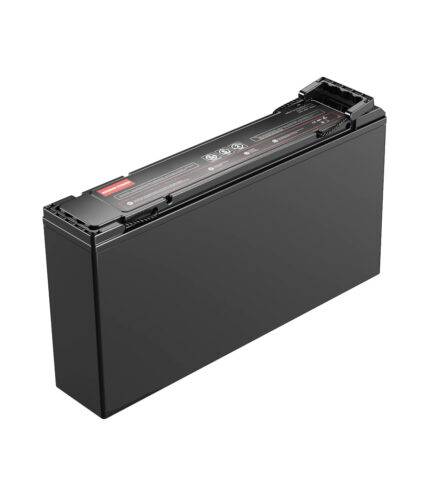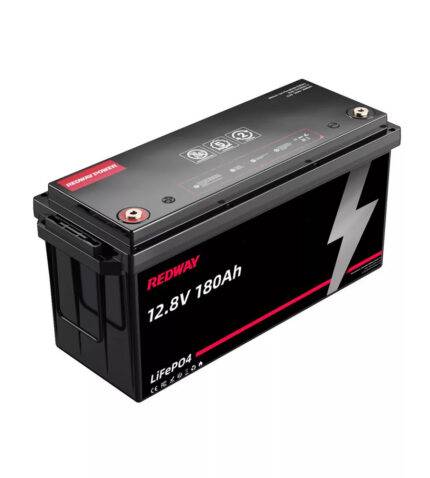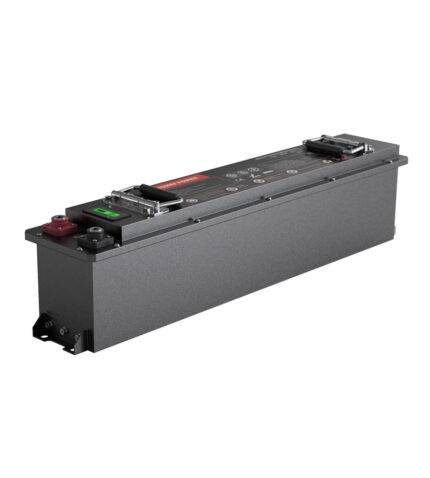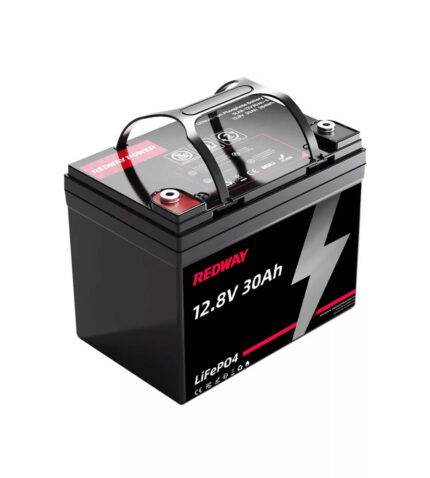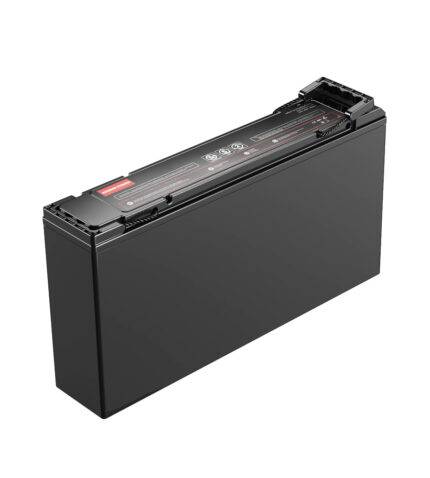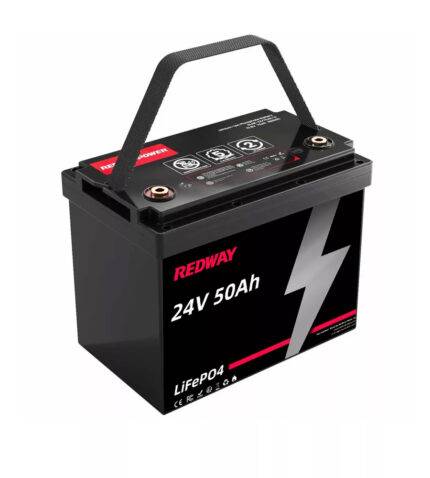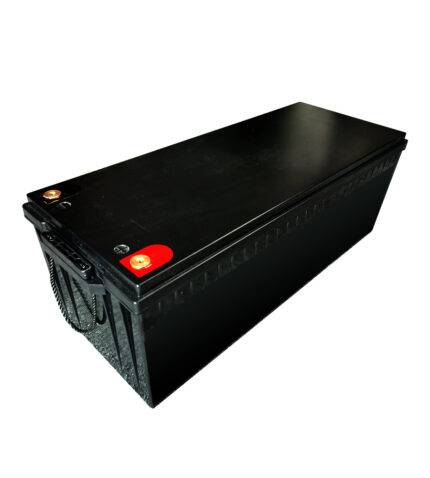- Rack-mounted Lithium Battery
- Golf Cart Lithium Battery
-
Golf Cart Lithium Battery
- 36V 50Ah (for Golf Carts)
- 36V 80Ah (for Golf Carts)
- 36V 100Ah (for Golf Carts)
- 48V 50Ah (for Golf Carts)
- 48V 100Ah (Discharge 100A for Golf Carts)
- 48V 100Ah (Discharge 150A for Golf Carts)
- 48V 100Ah (Discharge 200A for Golf Carts)
- 48V 120Ah (for Golf Carts)
- 48V 150Ah (for Golf Carts)
- 48V 160Ah (Discharge 100A for Golf Carts)
- 48V 160Ah (Discharge 160A for Golf Carts)
-
Golf Cart Lithium Battery
- Forklift Lithium Battery
- 12V Lithium Battery
- 24V Lithium Battery
- 36V Lithium Battery
- 48V Lithium Battery
-
48V LiFePO4 Battery
- 48V 50Ah
- 48V 50Ah (for Golf Carts)
- 48V 60Ah (8D)
- 48V 100Ah (8D)
- 48V 100Ah
- 48V 100Ah (Discharge 100A for Golf Carts)
- 48V 100Ah (Discharge 150A for Golf Carts)
- 48V 100Ah (Discharge 200A for Golf Carts)
- 48V 150Ah (for Golf Carts)
- 48V 160Ah (Discharge 100A for Golf Carts)
- 48V 160Ah (Discharge 160A for Golf Carts)
-
48V LiFePO4 Battery
- 60V Lithium Battery
-
60V LiFePO4 Battery
- 60V 20Ah
- 60V 30Ah
- 60V 50Ah
- 60V 50Ah (Small Size / Side Terminal)
- 60V 100Ah (for Electric Motocycle, Electric Scooter, LSV, AGV)
- 60V 100Ah (for Forklift, AGV, Electric Scooter, Sweeper)
- 60V 150Ah (E-Motocycle / E-Scooter / E-Tricycle / Tour LSV)
- 60V 200Ah (for Forklift, AGV, Electric Scooter, Sweeper)
-
60V LiFePO4 Battery
- 72V~96V Lithium Battery
- E-Bike Battery
- All-in-One Home-ESS
- Wall-mount Battery ESS
-
Home-ESS Lithium Battery PowerWall
- 24V 100Ah 2.4kWh PW24100-S PowerWall
- 48V 50Ah 2.4kWh PW4850-S PowerWall
- 48V 50Ah 2.56kWh PW5150-S PowerWall
- 48V 100Ah 5.12kWh PW51100-F PowerWall (IP65)
- 48V 100Ah 5.12kWh PW51100-S PowerWall
- 48V 100Ah 5.12kWh PW51100-H PowerWall
- 48V 200Ah 10kWh PW51200-H PowerWall
- 48V 300Ah 15kWh PW51300-H PowerWall
PowerWall 51.2V 100Ah LiFePO4 Lithium Battery
Highly popular in Asia and Eastern Europe.
CE Certification | Home-ESS -
Home-ESS Lithium Battery PowerWall
- Portable Power Stations
48V (51.2V) 100Ah Lithium Battery 8D
• Cell: LiFePO4
• MOQ: 50
• Delivery: 20 Days
• Customizable / OEM / ODM: Yes
• Factory: Redway, Dongguan, Guangdong, China
• Delivery Terms: FOB, EXW, CIF
• Payment: T/T, L/C, PayPal
• Sea / Air / Land Shipment: 10FT, 20FT, 40FT, 60FT
Description
Redway 48V 100Ah LiFePO4 Battery (BCI 8D battery) is an exceptional solution for your energy storage needs. Supported by customization options, a 3-year warranty, and continuous customer support, our product guarantees reliability and satisfaction. This premium LiFePO4 battery is meticulously crafted to replace conventional 48V 100Ah lead-acid batteries, delivering superior performance, prolonged lifespan, and environmental sustainability. Choose the Redway 48V 100Ah LiFePO4 Battery (BCI 8D battery) for a durable, efficient, and long-lasting energy solution.
Crafted by Redway Battery, a company with over 13 years of experience, our 48V 100Ah LiFePO4 Battery offers unmatched reliability and performance. With adjustable voltage, capacity, current, size, and appearance, it's perfect for various applications. Thanks to LiFePO4 technology, our battery is safe, reliable, and high-performing. Trust Redway Battery and experience the power of the 48V 100Ah LiFePO4 Battery today.
Equipped with overvoltage and overcurrent protection and certified by UN38.3, IEC62133, UL, and CE, the 48V 100Ah lithium battery ensures safety even in extreme conditions. Its Battery Management System (BMS) safeguards against temperature extremes, enabling seamless operation between -20°F and +150°F. Advanced features like Bluetooth connectivity and Battery Level Indicators enhance its functionality.
To prolong its lifespan, discharge the battery to 80-90% depth of discharge, promoting eco-friendly and sustainable energy solutions. Offering ample power for impressive speeds and extended range, the 48V battery ensures an outstanding user experience when properly maintained, utilizing the provided charger, and avoiding overcharging.
Features of 48V 100Ah LiFePO4 Battery (8D battery)
- Maintenance-Free: Requires no watering or equalization charging, reducing operational costs and hassle.
- Long Cycle Life: Offers up to 4000 cycles, ensuring durability and cost-effectiveness.
- Fast Charging: Supports quicker recharging times compared to traditional lead-acid batteries.
- BMS: Inbuilt BMS multiple security protection.
Why choose Redway Power?
- 3-year warranty
- Custom OEM/ODM acceptable without a MOQ Request
- Original Redway factory lifepo4 battery cell with factory price and grade A quality
- Smart BMS (Battery Management System)
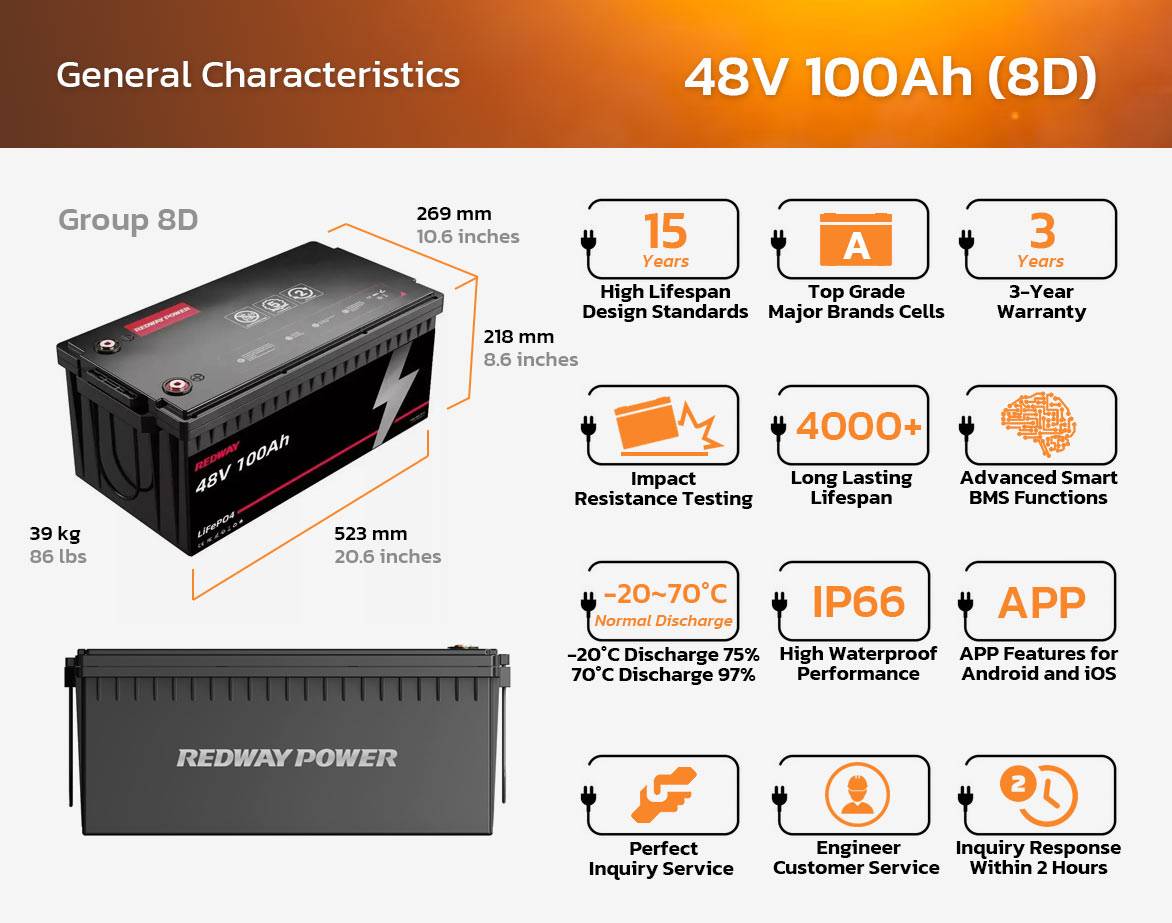
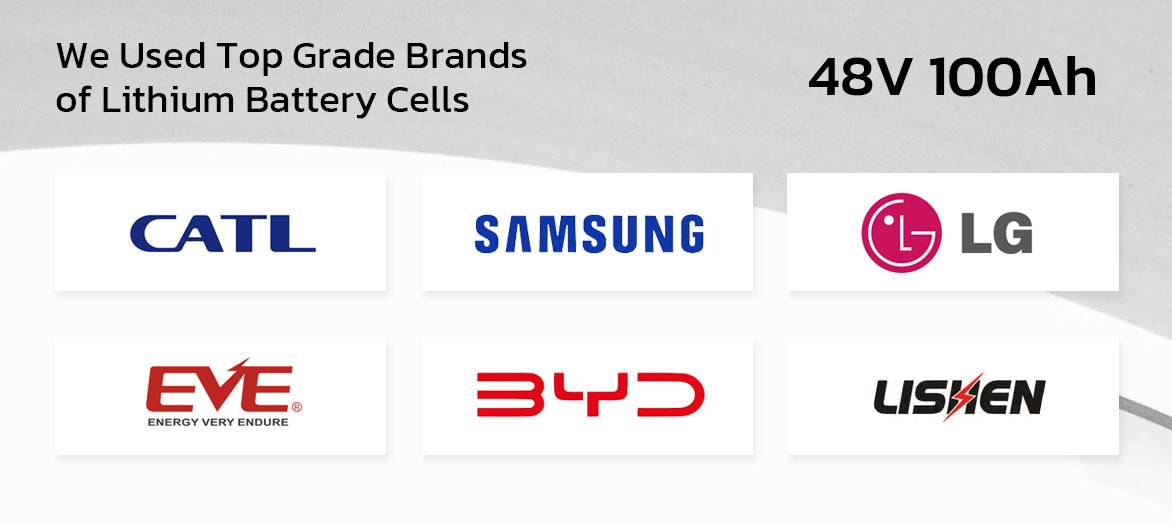
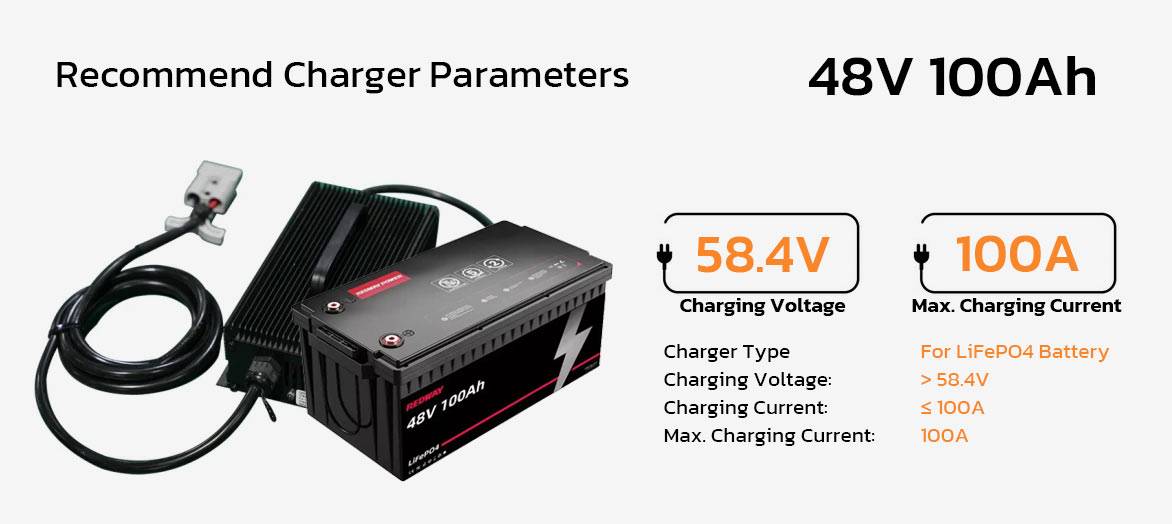
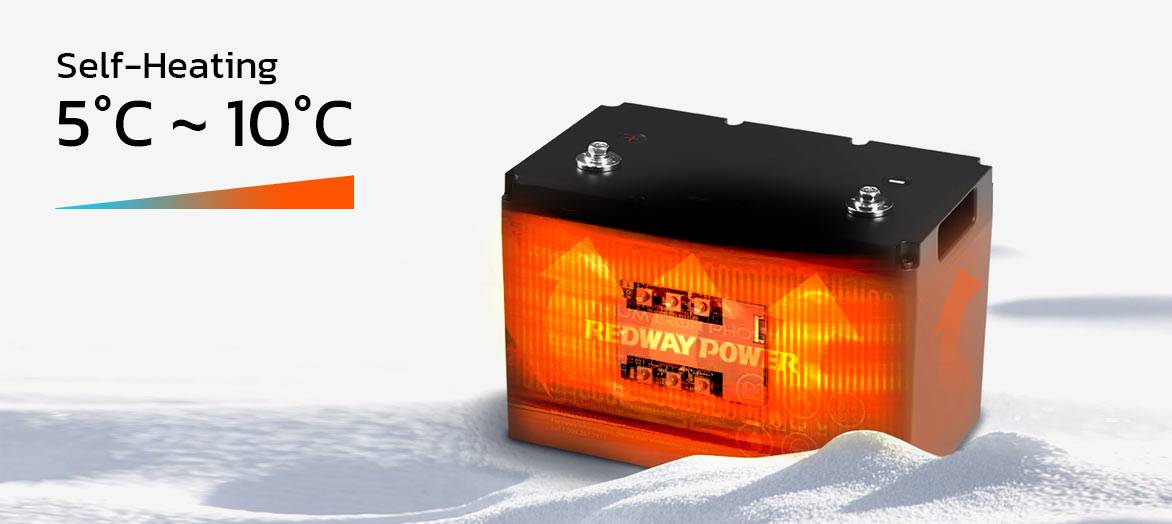
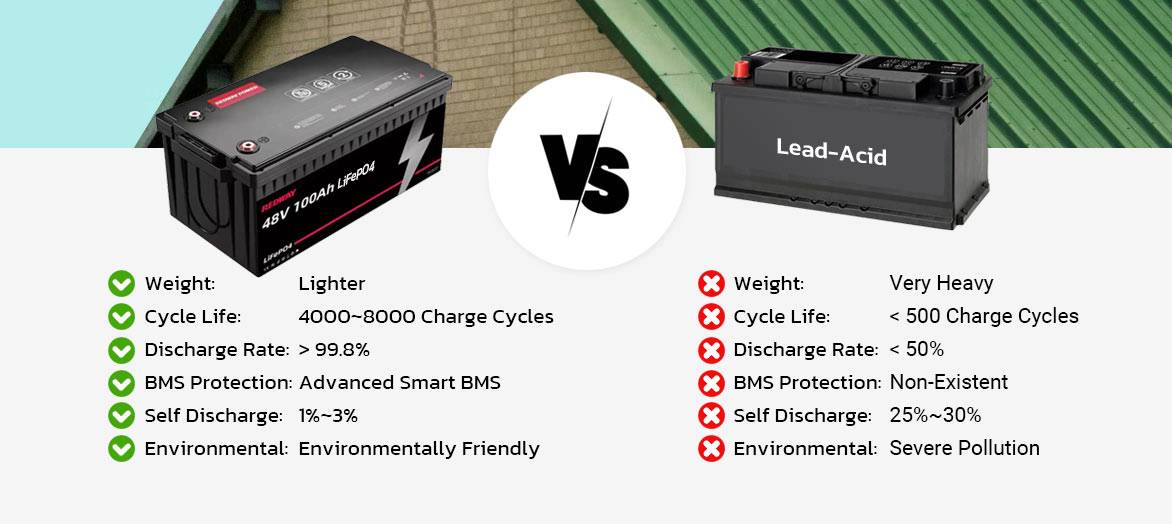
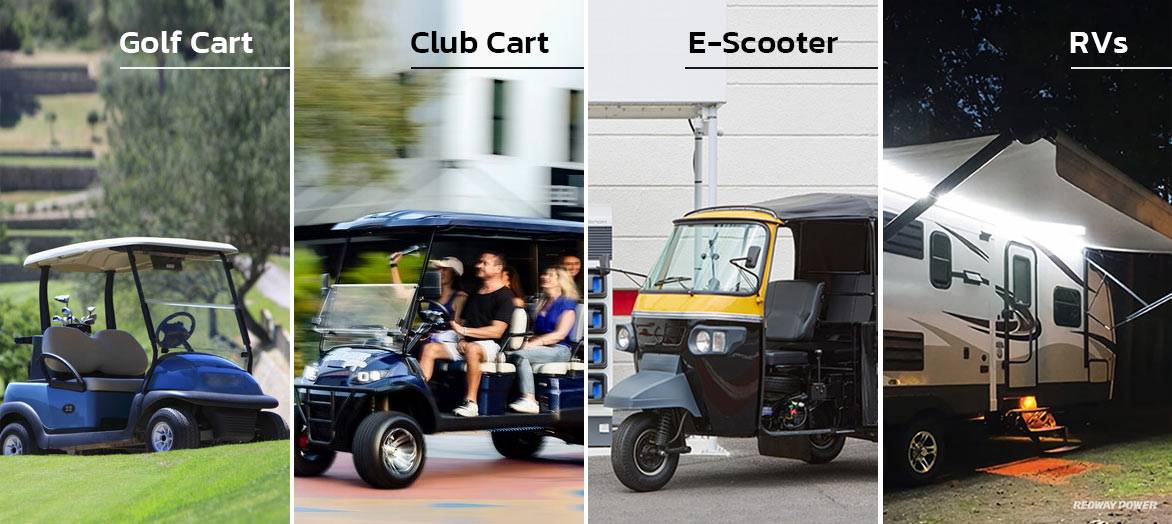
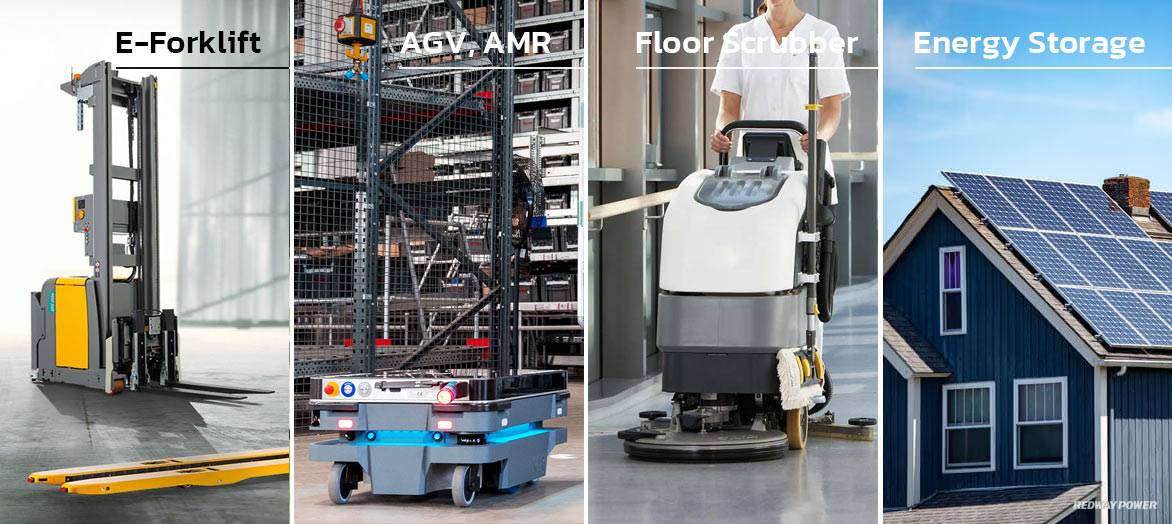
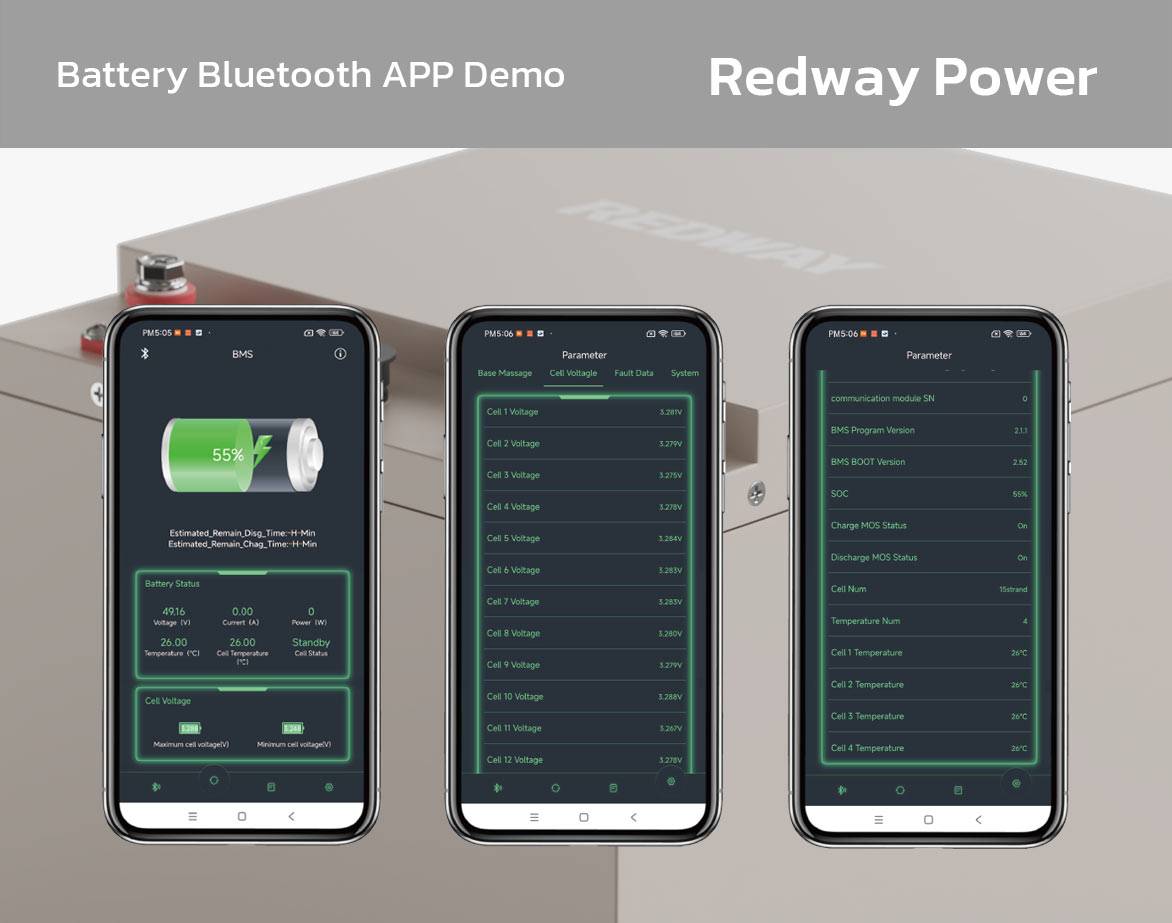
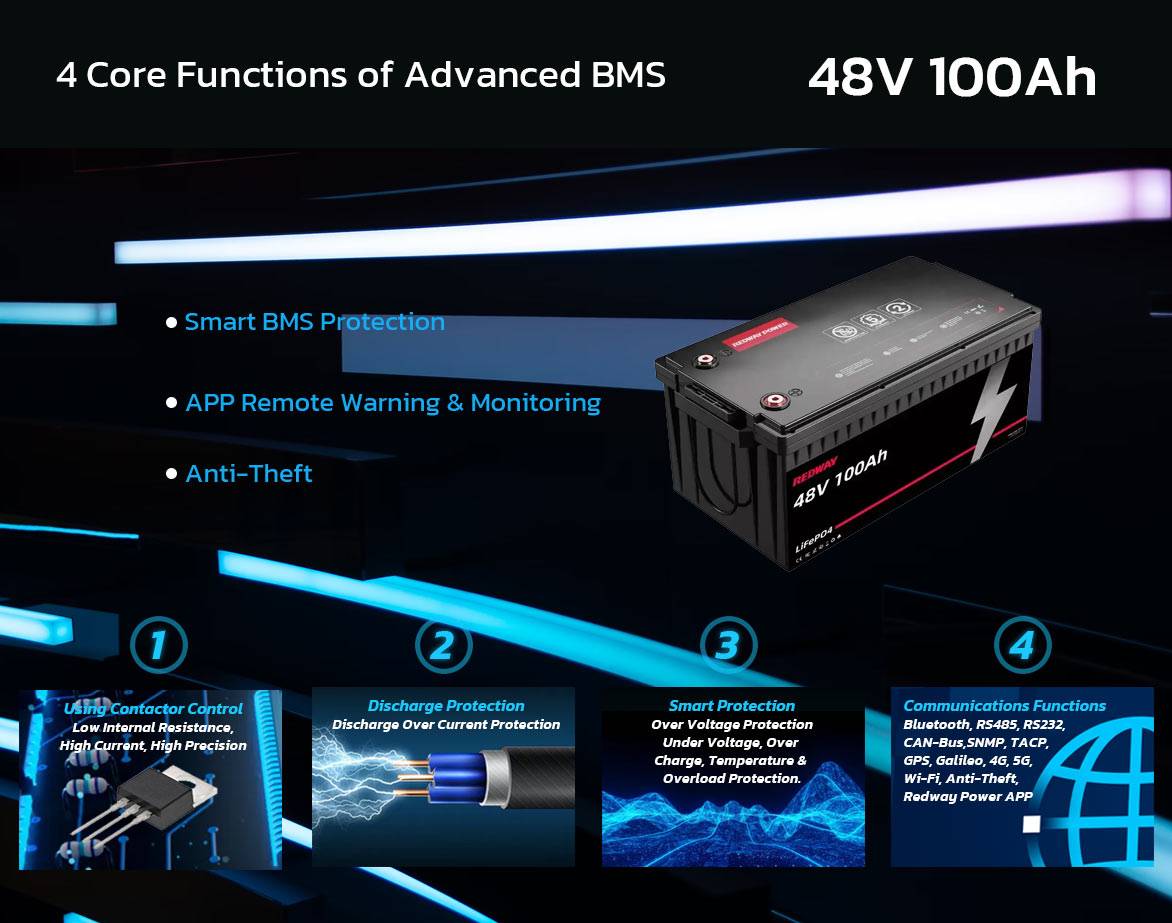
Packing & Delivery
Packaging:
- Carton box and pallet container.
- The packaging can be customized to meet different needs.
Shipping:
- New sample shipping takes 20-25 working days, while mass production requires 15-20 working days from receipt of deposit and sample confirmation.
- Sample orders ship via DHL, UPS, FedEx, or TNT, while bulk orders are sent by sea. We offer forwarding services upon request.
Our Services
OEM & ODM can customize according to your request :
- Battery voltage, capacity, and dimension.
- BMS charging and discharging current.
- Connector, case, and wire.
- Your own logo eg: silk print.
After-sales service is available :
- Respond in 24 hours to any inquiry on our product.
- Take action quickly for a normal customer’s claim within 12 hours.
- Good after-sales service: We offer 3 years quality warranty for lifepo4 batteries like 12-72V 20Ah/50Ah/100Ah/150Ah/200Ah/500Ah/1000Ah/…
- One by one tested before shipment.
FAQs
What is the wholesale price of 48V 100Ah lithium battery (8D)?
You can click contact us or phone call us. We will give you multiple options of price.
Is Redway Power a trading company or factory?
Redway Power is a company with its own factory, integrating research, development, production, and sales.
How about the quality of Redway's LiFePo4 Battery product?
Redway Power boasts over 12 years of experience in LiFePO4 battery production and is an authorized supplier for CATL and BYD.
Can you do an OEM/ODM project?
Yes, we have engineers available to assist in designing and developing any related products.
What’s your MOQ?
MOQ varies according to battery voltage and capacity.
What payment terms can we accept?
We accept TT/Paypal/West Union, etc.
Specifications
Download Datasheet
Note: Our products are customizable, allowing customers to modify the main data according to their requirements.
| 48V 100Ah | Specifications |
|---|---|
| Cell Type | LiFePO4 |
| Nominal Voltage | 51.2V |
| Nominal Capacity | 105Ah |
| Nominal Energy | 5376Wh |
| Charge Voltage | 58.4V |
| Discharge Voltage | 40V |
| Max. Continues Charge Current | 100A |
| Max. Continues Discharge Current | 100A |
| Dimensions [L x W x H] | 523 x 269 x 218 mm 20.6 x 10.6 x 8.6 in 8D |
| Weight | 39 kg 86 lb |
| IP Rating | IP65 (More request) |
| Series & Parallel | 16S1P |
| Max. Battery Parallel | 4P to 21.5kWh (More request) |
| Internal Resistance | ≤30mΩ |
| Cycle Life | >4000 cycles (DOD 80%) |
| Self-Discharge | 3% (Per month) |
| Charge Temperature | 0°C ~ 60°C 32°F ~ 140°F |
| Discharge Temperature | -20°C ~ 65°C -4°F ~ 149°F |
| Optional Functions | Bluetooth / WiFi / LCD / LED Touch Screen / RS485 / RS232 / CAN / 4G, 5G / GPS / APP |
| Charger | High current fast charger |
| BMS | Intelligent BMS protection |
| Terminal | M8 Bolts |
| Battery Case | ABS (Fireproof plastic) |
| Warranty | 3 Years |
| Silk-Screen / Label Printing | Yes |
| User Manual / Warranty Card | Yes |
| Customization / OEM / ODM | Yes |
| Shipment | Yes |
| Certifications | IEC, UN38.3, MSDS (More request) |
Applications and FAQs
48V 100Ah LiFePO4 batteries offer substantial improvements over traditional deep cycle batteries, making them ideal for applications like home alarms, camping, and solar lighting. With up to 4000 cycles compared to 500 cycles of standard sealed lead-acid (SLA) batteries, they provide longevity and cost-effectiveness, making them a preferred choice in the market for reliable power solutions.
What is a 48V 100Ah 8D lithium battery?
A 48V 100Ah 8D lithium battery is a type of rechargeable energy storage device designed with a voltage of 48 volts and a capacity of 100 ampere-hours (Ah). The "8D" designation refers to the battery size, following the standards set by the Battery Council International (BCI). These batteries are commonly used in marine, RV, commercial, and industrial applications, offering high energy density, long cycle life, and efficient power delivery.

In terms of specifications, a 48V 100Ah battery can sustain a continuous current output of 10 Amperes over a discharge period of 10 hours, totaling 100Ah of capacity. This equates to a substantial energy storage capacity of 4,800 Watt-hours or 4.8kWh, given the battery's voltage of 48 volts.
Overall, a 48V 100Ah lithium battery offers a versatile and dependable power solution, making it an ideal choice for various industrial, commercial, and residential applications where reliable energy storage is essential.
Where can you use a 48V 100Ah 8D lithium battery?
A 48V 100Ah 8D lithium battery finds applications in various sectors and scenarios:
- Marine: Powering electric propulsion systems, onboard electronics, and accessories on boats and yachts.
- RVs: Providing reliable energy storage for appliances, lighting, and entertainment systems in recreational vehicles.
- Commercial: Supporting backup power systems for critical equipment and ensuring uninterrupted operations in commercial settings.
- Industrial: Powering machinery, equipment, and lighting in warehouses, manufacturing facilities, and construction sites.
- Off-grid Power: Serving as a primary or backup power source in off-grid installations like remote cabins, communication towers, and renewable energy systems.
- Emergency Backup: Providing emergency power backup for essential facilities, telecommunications, and medical equipment during grid outages or emergencies.
- Mobile Power: Powering mobile workstations, mobile clinics, and field operations where reliable energy storage is essential.
In summary, the 48V 100Ah 8D lithium battery offers versatile and dependable energy storage solutions for various applications in marine, RV, commercial, industrial, and off-grid settings.
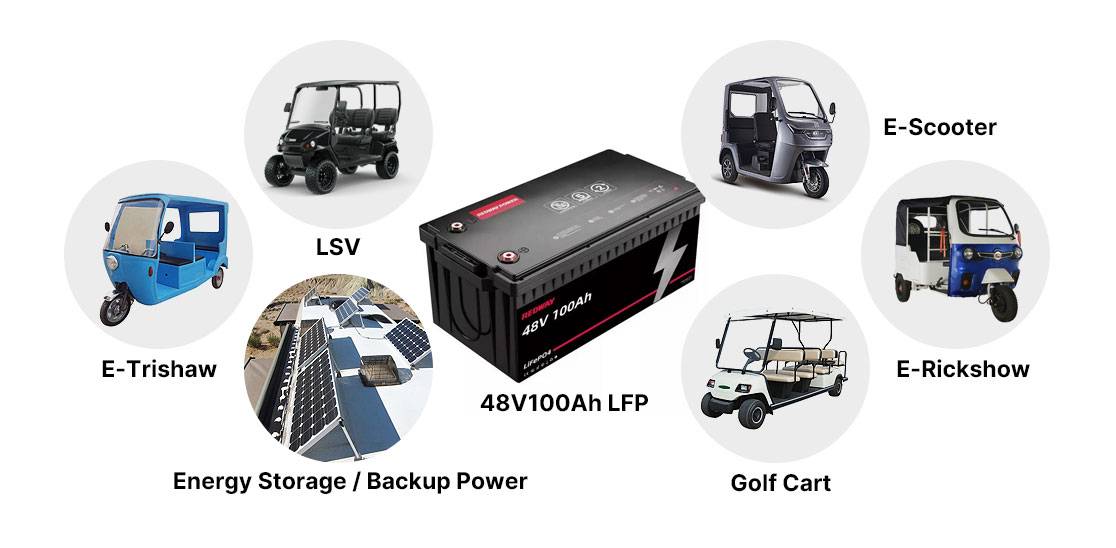
What are the advantages of a 48V 100Ah 8D lithium-ion battery?
Here are the advantages of a 48V 100Ah 8D lithium-ion battery, presented in bold and black:
- High Energy Density: Offers a high energy density, providing more power in a compact size compared to other battery types.
- Long Cycle Life: Lithium-ion batteries typically have a longer cycle life, enduring more charge-discharge cycles before experiencing capacity degradation.
- Efficient Charging: Charges more efficiently and has lower self-discharge rates compared to lead-acid batteries, ensuring stored energy is retained for longer durations.
- Lightweight: Lightweight construction makes handling and installation easier, reducing overall vehicle or equipment weight.
- Fast Charging: Lithium-ion batteries support fast charging, allowing for quicker turnaround times and increased productivity.
- Versatility: Suitable for various applications, including marine, RVs, commercial, industrial, off-grid power, emergency backup, and mobile power solutions.
- Low Maintenance: Requires minimal maintenance compared to traditional lead-acid batteries, reducing operational costs and downtime.
- Environmentally Friendly: Lithium-ion batteries have a lower environmental impact compared to lead-acid batteries due to their longer lifespan and recyclability.
In summary, a 48V 100Ah lithium-ion battery offers a multitude of benefits, including versatility in connectivity, freedom from memory effect, robust cycle life, enhanced energy density, low self-discharge, and eco-friendliness, making it an ideal choice for a wide range of applications.
What are the disadvantages of a 48V 100Ah 8D lithium battery?
Here are the disadvantages of a 48V 100Ah 8D lithium-ion battery:
- Higher Initial Cost: Lithium-ion batteries typically have a higher upfront cost compared to traditional lead-acid batteries, which may deter some users.
- Safety Concerns: There are safety concerns associated with lithium-ion batteries, including the risk of thermal runaway and fire if mishandled or damaged.
- Complex Recycling: Lithium-ion batteries require specialized recycling processes, which can be more complex and costly compared to lead-acid batteries.
- Limited Temperature Range: Lithium-ion batteries may have limited performance at extreme temperatures, affecting their efficiency and lifespan.
- Potential Degradation: Like all batteries, lithium-ion batteries can degrade over time, particularly if subjected to frequent deep discharges or high temperatures.
While these disadvantages exist, the benefits of lithium-ion batteries often outweigh them, especially for applications where high performance and energy efficiency are crucial.
How long will a 48V 100Ah 8D battery last if fully charged?
The lifespan of a fully charged 48V 100Ah 8D battery depends on several factors, including the load it powers, its discharge rate, and environmental conditions. Typically, you can estimate the runtime by dividing the battery's capacity (100Ah) by the load's current draw (in amperes). For instance, if the load draws 10 amps, the battery would last approximately 10 hours (100Ah ÷ 10A = 10 hours) under ideal conditions. However, actual runtime may vary due to factors like temperature, age, and depth of discharge.
48V 100Ah lithium battery vs lead-acid battery, which is better?
Comparing a 48V 100Ah lithium battery to a lead-acid battery, the lithium battery generally offers several advantages:
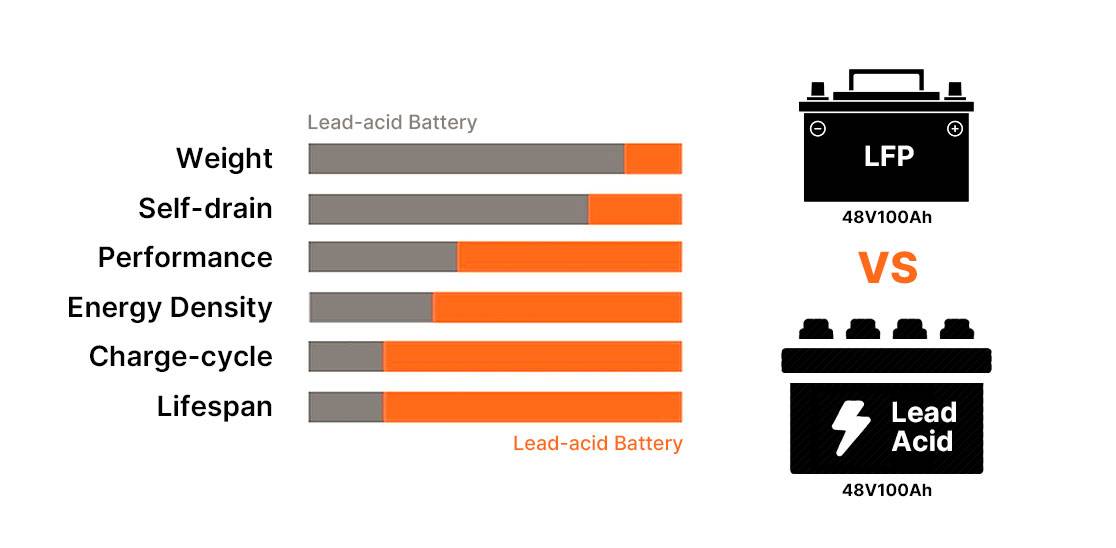
- Performance: Lithium batteries typically provide higher energy density, longer cycle life, and faster charging compared to lead-acid batteries, ensuring more consistent power output.
- Weight and Size: Lithium batteries are lighter and more compact than lead-acid batteries, making them preferable for applications where space and weight are critical factors.
- Cost-effectiveness: Although lithium batteries have a higher upfront cost, they often offer better long-term value due to their longer lifespan and lower maintenance requirements compared to lead-acid batteries.
- Safety: Lead-acid batteries are generally considered safer and more stable than lithium batteries, which can be prone to thermal runaway and fire if mishandled or damaged.
- Environmental Impact: Lead-acid batteries are more environmentally harmful due to their toxic materials and specialized recycling processes. Lithium batteries, though requiring proper disposal, have a lower overall environmental impact.
In summary, while lead-acid batteries have their advantages, 48V 100Ah lithium batteries typically offer superior performance, efficiency, and longevity, making them the preferred choice for many applications where reliable energy storage is essential.
What quality standards does Redway apply to the 48V 100Ah 8D lithium battery?
Redway applies stringent quality standards to the 48V 100Ah 8D lithium battery, ensuring reliability and safety:
- Adherence to International Standards: Redway ensures compliance with ISO 9001 for quality management systems and ISO 14001 for environmental management during manufacturing.
- Certifications for Safety and Compliance: Obtaining certifications like UL (Underwriters Laboratories) or CE (Conformité Européenne) to demonstrate adherence to safety and product standards.
- Rigorous Testing Procedures: Subjecting batteries to thorough testing, including the IEC 62133 test, to verify safety and prevent short-circuiting.
- Stringent Manufacturing Processes: Implementing strict manufacturing processes to maintain consistency and quality throughout battery production.
- Comprehensive Quality Control Measures: Employing extensive quality control measures to monitor and ensure battery quality and performance at every stage of production.
Adhering to these points ensures that the 48V 100Ah lithium battery meets industry and regulatory requirements, guaranteeing reliable performance and safety for users.
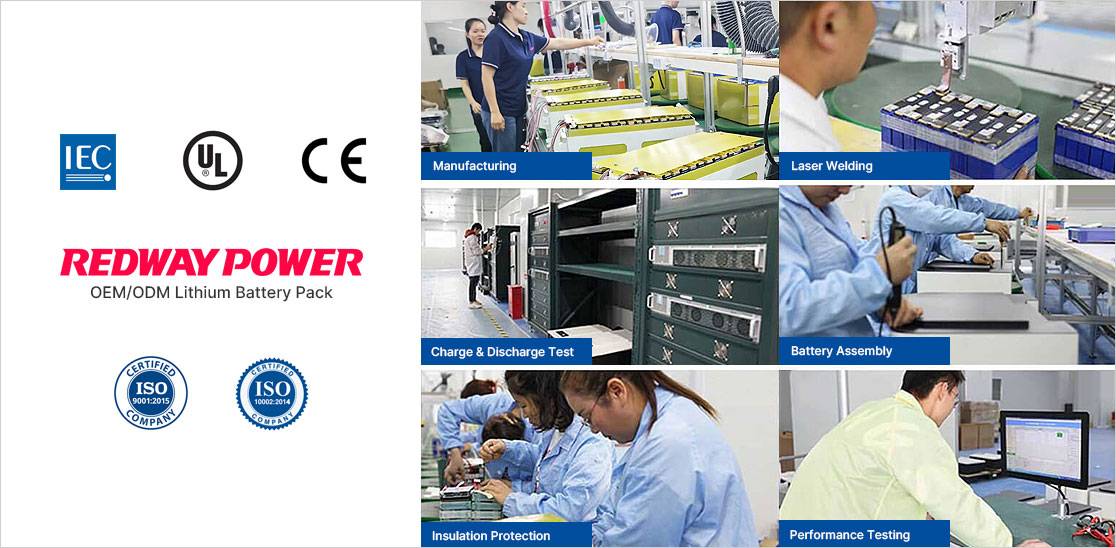
Is it safer to use a 48V 100Ah lithium-ion battery?
Yes, it is generally safer to use a 48V 100Ah lithium-ion battery compared to traditional lead-acid batteries. Lithium-ion batteries have built-in safety features and are less prone to issues like leakage, acid spills, and sulfation that are common with lead-acid batteries. However, proper handling, storage, and charging practices are essential to ensure safe usage of lithium-ion batteries and to mitigate potential risks like thermal runaway or fire.
What are the features of a 48V 100Ah lithium-ion battery?
The 48V 100Ah lithium-ion battery is a favored option for many applications due to its advantageous qualities. These include a high energy density, resulting in greater storage capacity in a compact and lightweight design compared to conventional lead-acid batteries. It also boasts a long cycle life, withstanding multiple charge and discharge cycles without notable loss of capacity, ensuring dependable performance over the long run. Furthermore, it charges efficiently, has a low self-discharge rate, and demands minimal upkeep, making it an economical and trouble-free power solution.
What are the specifications of a 48V 100Ah lithium-ion battery?
A 48V 100Ah lithium-ion battery's specifications typically consist of its voltage rating of 48 volts and a capacity of 500 ampere-hours (Ah). Additional crucial specifications may encompass size, weight, maximum discharge rate, operating temperature range, expected cycle life, and built-in safeguards such as protection circuits. These details may differ among manufacturers and intended purposes, making it necessary to thoroughly examine the datasheet or product specifications for suitability and optimal functioning in specific scenarios.
How to maintain a 48V 100Ah lithium-ion battery?
The following steps will help you maintain your 48V 100Ah lithium-ion battery effectively to maximize its lifespan and ensure optimal performance:
- Follow Manufacturer Guidelines:Adhere to all guidelines provided by the manufacturer before using the battery, and handle it with care to prevent damage.
- Regular Monitoring:Avoid leaving the lithium battery unattended for extended periods. Regularly check the battery status and charge rate, as it may gradually self-discharge when not in use.
- Charge Before Storage:Although lithium batteries have a low self-discharge rate, it's essential to charge or discharge them before extended storage periods. Avoid storing them at high temperatures, as this can reduce their lifespan.
- Handle with Precaution:Take precautions to protect the battery from excessive vibrations, as they can affect its performance. Additionally, manage temperature and prevent overcharging (high-voltage) to maintain optimal battery health.
You can ensure that your 48V 100Ah lithium-ion battery remains in great condition by following these maintenance practices.












